Source: SCMP (1/21/20)
Hong Kong protests inspire film festival organisers from Rotterdam to New York
From a 1992 film about life in a cage-home apartment to dystopian feature Ten Years to newly shot short films, Rotterdam event aims to set protests in context. New York’s Metrograph Cinema programme To Hong Kong With Love is billed as a series of Hong Kong New Wave films paired with documentaries about the protests
By Richard James Havis
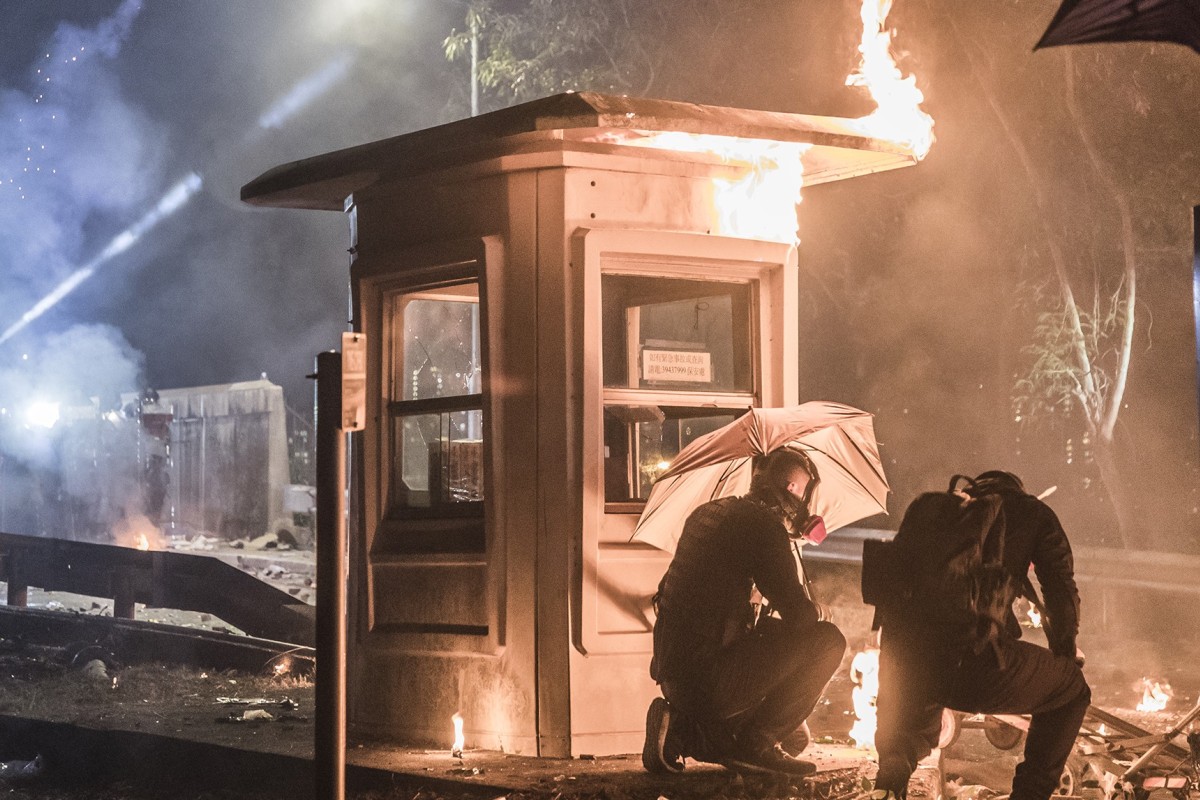
A still from the new documentary film If We Burn by James Leong and Lynn Lee, which will be showing at the International Film Festival Rotterdam in the Netherlands.
It is difficult for Hongkongers to see locally made films about the ongoing anti-government protests in Hong Kong cinemas. But interest in the demonstrations has led foreign cinemas and film festivals to programme documentaries and feature films relating to Hong Kong’s political movements.
This month, the Netherlands’ International Film Festival Rotterdam, one of the world’s top-10 film festivals, is screening a programme called Ordinary Heroes: Made in Hong Kong, which comprises more than 20 documentaries, features and short films that focus on the “umbrella movement” in 2014 and the current protests. The festival opens on January 22.
In New York, the popular Metrograph Cinema on Manhattan’s Lower East Side will present a programme titled To Hong Kong With Love, which it describes as a “series of Hong Kong New Wave films paired with timely documentaries about the current protest movement”. The programme opens on February 1.
The aim of the Metrograph programme is to give Hong Kong people a voice, said the organisers in a statement. “The Hong Kong protests were in the news for the better part of 2019 and were the subject of widespread debate, much of it by outside observers with a vested interest in imposing their own narratives. To Hong Kong with Love is made up of films which show Hongkongers speaking for themselves.”
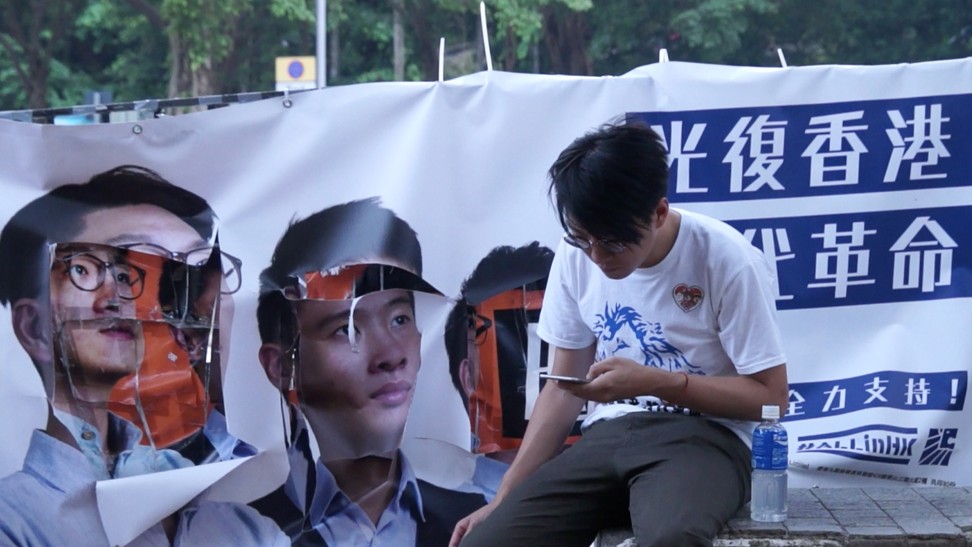
Political activist Edward Leung in a scene from the 2017 documentary Lost in the Fumes.
Both programmes feature Lost in the Fumes, Nora Lam Tze-wing’s popular 2017 documentary about imprisoned activist Edward Leung Tin-kei; the prophetic portmanteau film Ten Years, a surprise best picture winner at the 2016 Hong Kong Film Awards; and Chan Tze-woon’s 2016 documentary Yellowing, about the filmmaker’s growing involvement with the students he filmed during the “umbrella movement” occupation of key city arteries.
Among the films that will receive their world premiere at the Rotterdam festival are We Have Boots, Evans Chan’s latest reflection on the “umbrella movement” protests, and an in-progress documentary called If We Burn by James Leong and Lynn Lee, which features on-the-spot footage shot during the current protests.
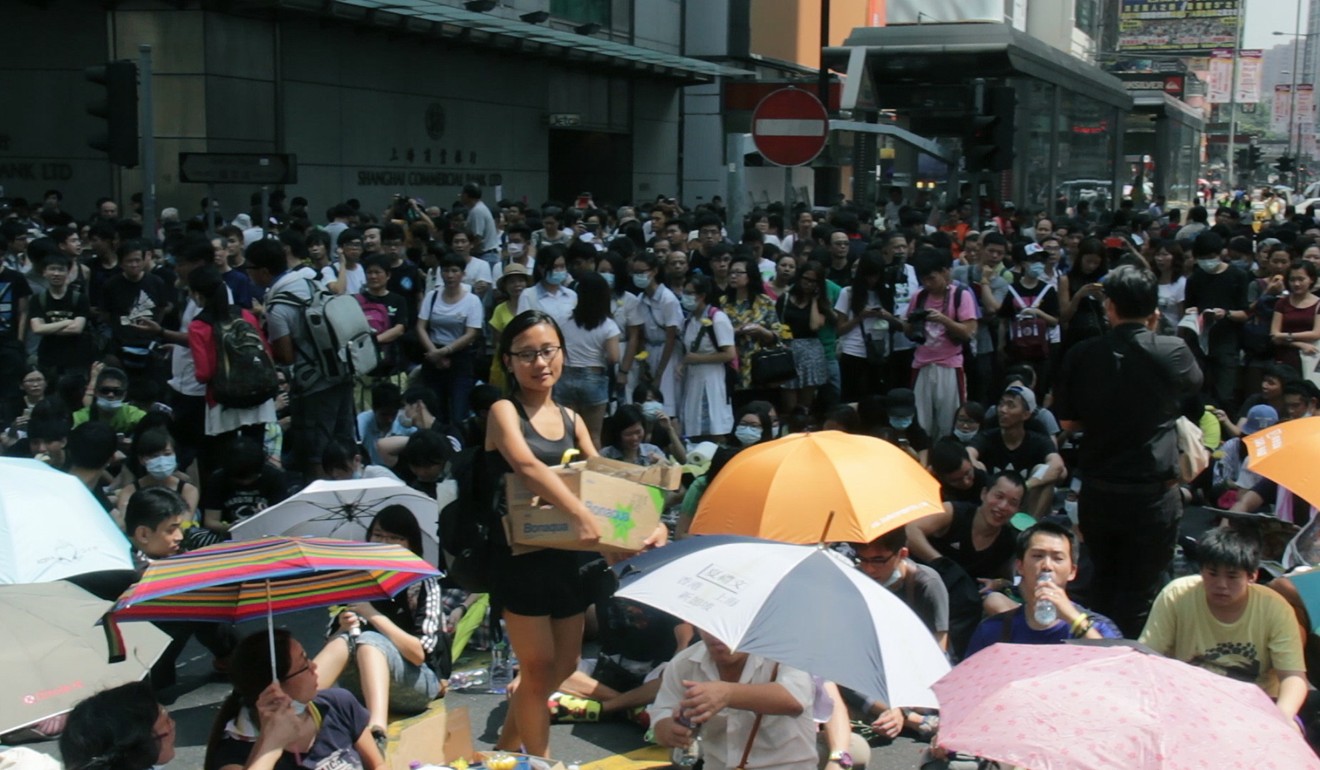
Chan Tze-woon’s 2016 documentary Yellowing details the filmmaker’s involvement with the students he filmed during the “umbrella movement” protests.
Both the Rotterdam and New York programmes include non-documentary feature films from the archives.
“I have been following with great interest and emotion what has been happening in Hong Kong since June,” says Rotterdam festival programmer Shelly Kraicer, an expert on Chinese-language film based in Toronto, Canada.
“I did a research trip to Hong Kong in October and November and got a sense of what is going on the ground. I was struck by how Hong Kong people live in a constant state of stress. The trip made a deep impression on me,” Kraicer says.
The idea behind his programming at the Dutch festival is to reflect the web of political, social and cultural issues which prompted the protests, says Kraicer. He notes that people outside Hong Kong often have a limited understanding of the causes of the demonstrations that began last June.
Films are a useful way of conveying such information, he says, because they reflect the political environment that they are made in, even if they are not films about politics.
This is especially true of Hong Kong films, says Kraicer. “The political context is vital to Hong Kong films. My mentors in Hong Kong always told me to read modern Hong Kong films with two dates in mind – 1989 and 1997. Now I think that 2019 can be added to that list.”
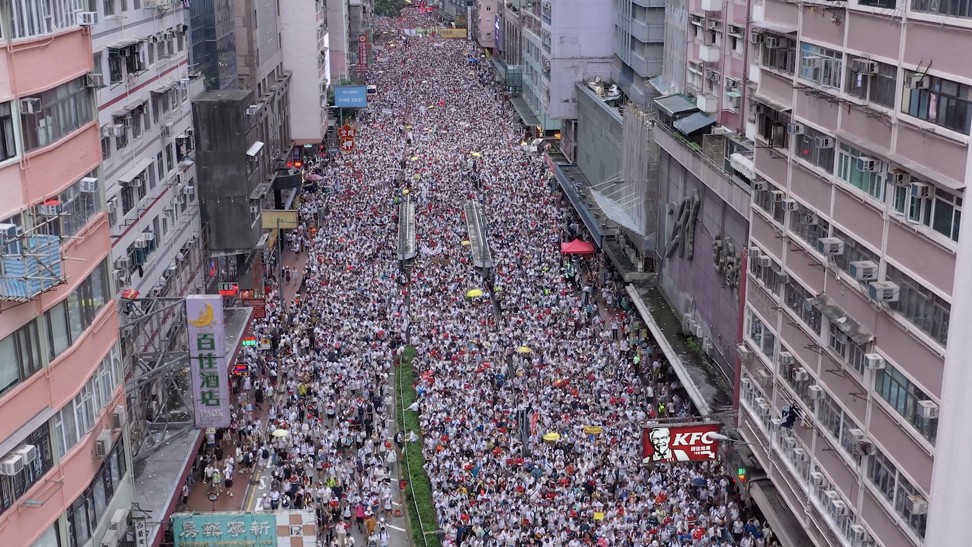
A scene from the documentary film We Have Boots.
Rotterdam audiences will gain a greater understanding of the forces currently at work in Hong Kong from the programme, he says. “I have had a long engagement with Hong Kong, and I understand that it’s complicated to define and understand what being a Hongkonger is. There are many parts to that – it is a set of complex identities.
“One of the ways to dig in and understand what it means to be a Hongkonger is to see how those identities are reflected in the films,” Kraicer says. “By watching the films, we can learn about Hong Kong, the place, and also find out more about what makes Hong Kong people the way that they are.”
Kraicer thinks that it’s important to show how the roots of today’s demonstrations extend back into the past. For instance, he is screening Jacob Cheung Chi-leung’s 1992 feature film Cageman, which explores the lives of dwellers in a fictional cage-home apartment – where single men live in bed spaces divided by wire mesh – to show foreign viewers the extent of Hong Kong’s housing problems, and Ann Hui On-wah’s Ordinary Heroes, a feature film about political activists in Hong Kong in the 1980s.
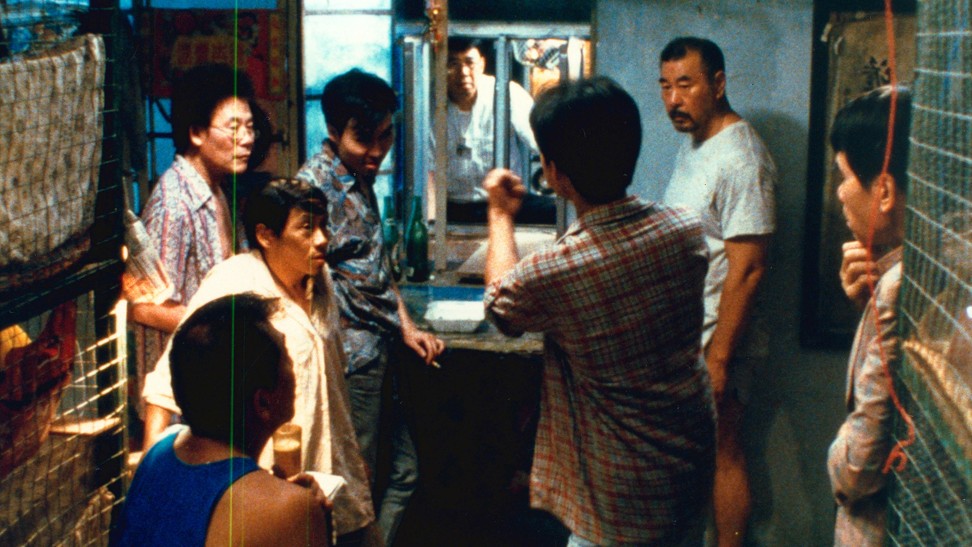
The 1992 film Cageman shows the extent of Hong Kong’s housing problems.
“I want a Western audience to see how the concerns motivating people in Hong Kong today – especially young people – have not just sprung out of nowhere, but have always been stressors in Hong Kong society,” he says.
“So I have chosen archival feature films that represent inequality, youth alienation, the tension between mainland [China] and Hong Kong, and so on. I’m hoping that the series can put the current Hong Kong turmoil in a kind of historical context for international audiences,” he says.
If We Burn is screening in an unfinished form at Rotterdam. It’s a classic on-the-spot news-style documentary, says Kraicer. “We are only able to show it as a work in progress in Rotterdam because they are still shooting it.
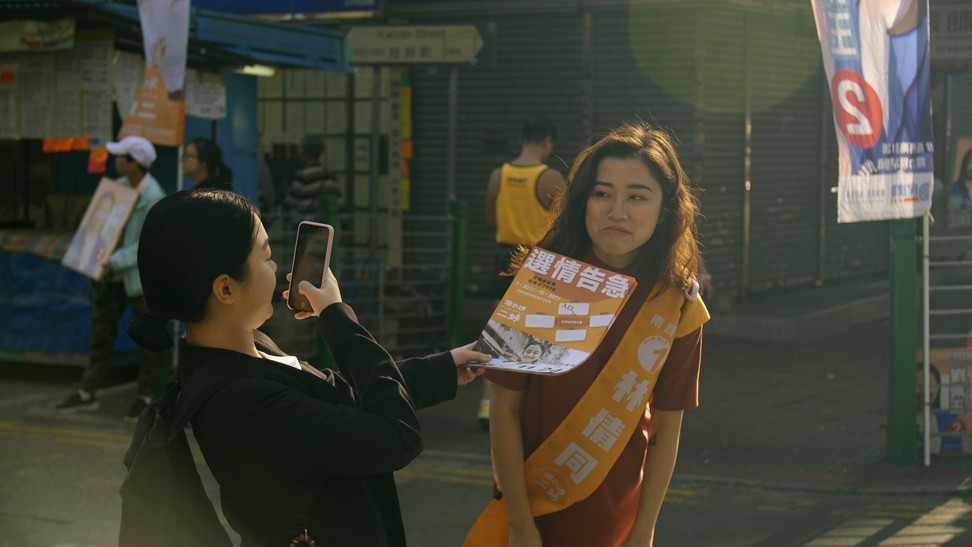
A still from new film Memories to Choke On, Drinks to Wash Them Down.
“James and Lynn have been on the ground with their cameras since the protests began. They go out and shoot demonstrations, they interview people, and they have structured the footage by following several activists and participants through the various stages of the action. It is very much about what is happening now and it has a real urgency to it,” he says.
“We are showing Evans Chan’s new film We Have Boots, which is a classic intellectual analysis of the ‘umbrella movement’. It’s a thoughtful and reflective film about the ideas behind the movement which seemed, at the time, to have failed,” adds Kraicer.
“We also have Memories to Choke On, Drinks to Wash Them Down, by Ming-kai Leung and Kate Reilly. It is mainly a fiction film, but it uses different forms of storytelling to represent what’s happening now.”
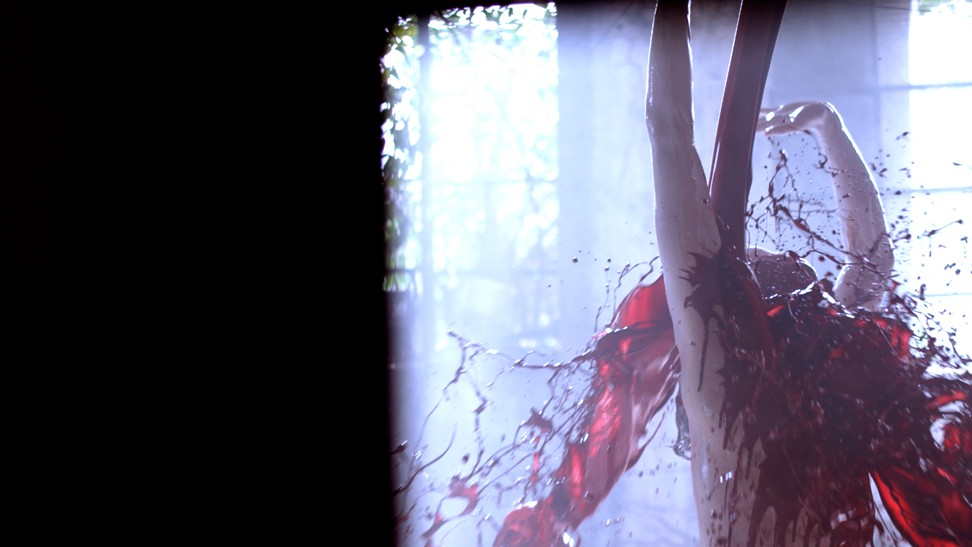
Experimental dance film The Cube Phantom uses modern dance to explain the protests in Hong Kong.
The Cube Phantom, by Alan Lau, is unusual – it uses modern dance to express an opinion about the protests. “I was delighted and surprised to find this,” says Kraicer.
“I was hoping to discover interesting formal approaches to the demonstrations, and here we have an abstract dance film. It features 10 different style of dance and 10 different kinds of music, and is set in 10 different locations. The dancers create a kind of mental landscape that reflects what is going on.”
A selection of short films also presents up-to-the-minute views, says Kraicer. “The protests are still ongoing, so there has not been much time to reflect on them with feature films, which take a long while to make. There are a lot of people making shorts on the ground, and these can reflect the changes in the situation very quickly.”
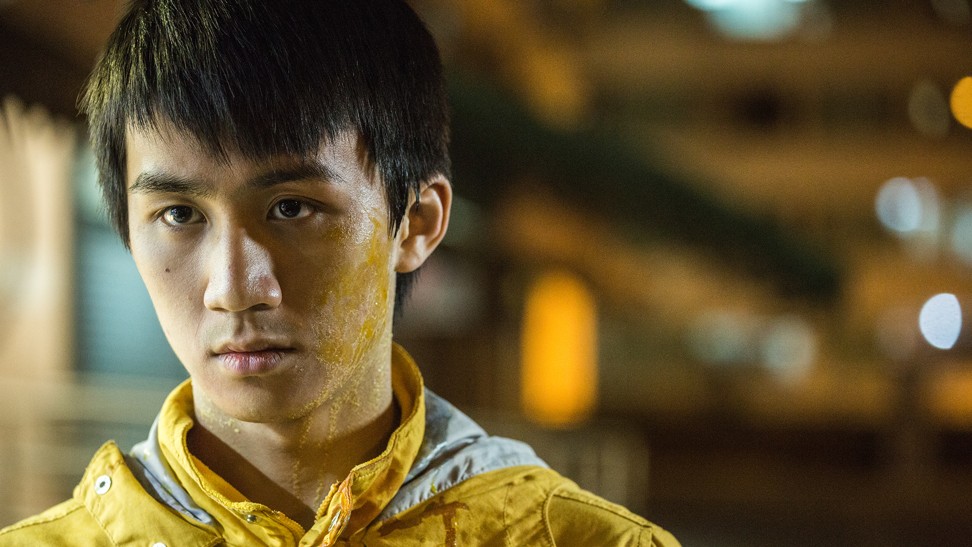
Actor Ng Siu-hin in a scene from the 2015 film Ten Years.
Kraicer believes that those who watch the programme in Rotterdam will come away with a better understanding of the aims of the protesters. “With the new films, I’m showing a variety of genres and approaches that, watched together, can give a sense of the different angles, of the complexity of what is happening in Hong Kong,” he says.
Kraicer also hopes Hong Kong filmmakers will be encouraged by the programme. “I hope that Hong Kong filmmakers will realise that there are people out there that care about their art, their situation and their home,” he says.